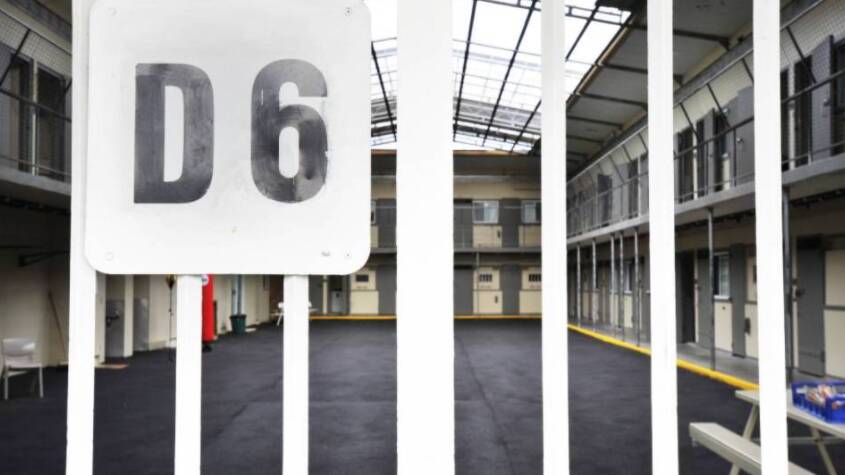
Tasmania's Custodial Inspector has accused the state's prison system of hiding the true extent of prisoner overcrowding.
Subscribe now for unlimited access.
$0/
(min cost $0)
or signup to continue reading
Custodial Inspector Richard Connock in a new report on Tuesday said on face value, the Tasmanian Prison System's facilities were managing to stay below the maximum threshold of 95 per cent.
However, he said the use of temporary beds might be masking the true extent of facility over utilisation.
"Many temporary beds, installed to accommodate growing prisoner numbers, have remained as permanent arrangements and have effectively become permanent bed installations yet are not calculated in overall capacity utilisation," he said.
"The report identifies that 85 temporary beds have been excluded from numbers used by TPS to calculate and report on either total design capacity or total current capacity."
In his report, Mr Connock said temporary beds were classified as either mattresses placed on floors or beds installed in bunk-bed or single-bed configurations in cells.
He said the majority of prison cells at the state's five custodial centres did not meet the United Nations' Standard Minimum Rules for the Treatment of Prisoners minimum cell area for single and double cells with toilets and washing facilities.
Mr Connock said no formal risk or profile assessment was performed by the prison service when determining which prisoners should be housed in multiple occupancy cells.
"Single or double cells that have been converted to multiple occupancy cells considerably reduce the accommodation and living standards for prisoners in terms of mobility, privacy and dignity, mental health and storage of private possessions," he said.
Attorney-General Elise Archer said the inspection upon which the report was based was conducted 11 months ago and a number of changes had occurred since then which addressed points raised by Mr Connock.
"A number of strategies have also been developed to enable the TPS to effectively manage capacity pressures," she said.
"This includes the installation of a number of temporary surge beds and the phased introduction of a dedicated vacancy management unit to oversee the assignment of prisoners to accommodation."
Ms Archer said remandees were the fastest-growing prison population group and pressure would be alleviated once a new 156-bed Southern remand centre was operational next year.
Greens justice spokeswoman Rosalie Woodruff said the state's prisons were an overcrowded powder keg.
"Years of statistics illustrate prison overcrowding, violence, and reoffending are all consistently increasing under this government," she said.
Prisoners Legal Service Tasmania chairman Greg Barns said prison overcrowding should be a factor in granting bail to those on remand.
"Prisoners are being forced into living in spaces designed for one and when one adds to this the continual lockdowns, this is a human rights scandal which should not be ignored by any government," he said.


